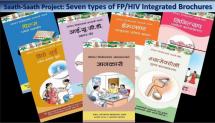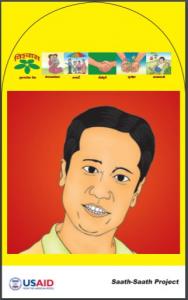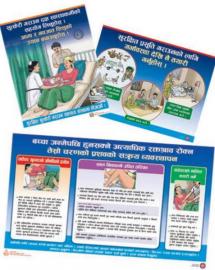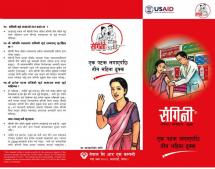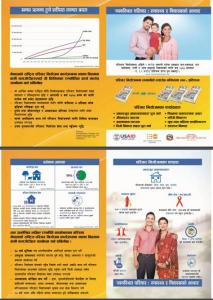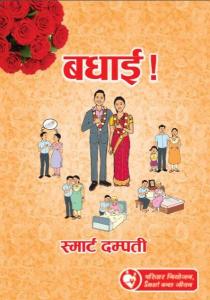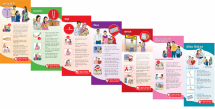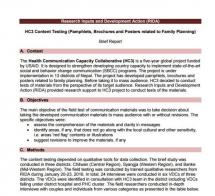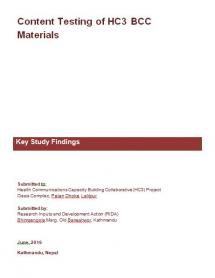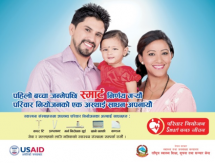Saath-Saath Integrated Brochure – Seven types of FP/HIV
Saath-Saath Project (SSP), funded by United States Agency for International Development (USAID) provided HIV prevention, care, support and treatment services along with family planning (FP) services, referral and gender-based violence (GBV) prevention and mitigation services through its outreach activities and expanded integrated health services (EIHS) sites. T
FP and its integration into HIV/AIDS is a major component of Saath-Saath Project (SSP). By providing information and education on FP and FP methods to Key Affected Populations (KAPs) and to help create demand for FP methods and services, development/printing and distribution of comprehensive FP method related SBC material is essential. Outreach staff, Drop-in Center (DIC) Operators and service providers distribute the comprehensive FP/HIV integrated brochures to selected KAPs, so that they will be better informed and choose FP methods and services of their choice.
The seven brochures are:
- Family planning
- Oral contraceptives
- Injectable contraceptives
- IUDs
- Implantable contraceptives
- Minilap
- Vasectomy
Source: FHI 360
Date of Publication: March 25, 2019
SIMILIAR RESOURCES
Tools
Examples
- Family Planning Counselling Kit
- Toolkit for Transition of Care and Other Services for Adolescents Living with HIV
- Men's Reproductive Health Curriculum
- Suaahara Training Guidelines and Participant Handbooks
- Men's Health Kit
- Community Communication MNCH e-Manual: Participatory Health Promotion Sessions
- Promoting Quality Malaria Medicine through Social and Behavior Change Communication
- Training Resource for Male Condoms
- Guide to Strategic Communication Online
- Program H: Working with Young Men

